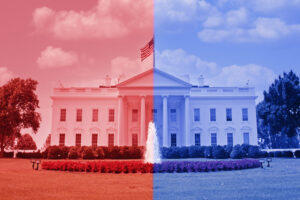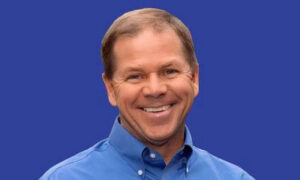If one change could profoundly elevate American politics, it is how campaigns are funded.
The relentless need for fundraising incentivizes candidates to exhaust the generosity of small-dollar donors and, at the risk of diminishing their values and policy objectives, rely heavily on a limited number of wealthy contributors. After all, for politicians who have gotten into trouble, it was likely because of… you guessed it — a campaign finance-related issue.
Something is broken in our political system when even historically strong fundraisers repeatedly beg for just a few more dollars before another reporting deadline. As one political season rolls into another, donors are endlessly solicited. In June, the nonprofit news site NOTUS (News of the United States) reported that small-dollar donors across the political spectrum are tapped out. What happens when small donors are finally done?
The late Senator Robert F. Kennedy Sr. prophetically cautioned:
“The mounting cost of political elections is rapidly becoming intolerable for a democratic society, where the right to vote — and to be a candidate — is the ultimate political protection. For we are in danger of creating a situation in which our candidates must be chosen from among the rich, the famous, or those willing to be beholden to others who will pay the bills. Heavy dependence on the relatively few who can meet these enormous costs is not only demeaning and degrading to the candidate, it also engenders cynicism about the political process itself.”
A 2013 Northwestern University study found the financial clout of the top 1% of US wealth-holders exerts significant political influence on policies related to taxation, economic regulation, and social welfare. This influence often stands in opposition to how most Americans want their government to function.
Small donor burnout pressures candidates who do not self-fund to seek the support of large individual and institutional donors. Those major donors are frequently derided by critics as elites applying disproportionate control over elected officials and public policy.
The ability to campaign and communicate with increasingly hard-to-reach voters costs money. How then can we encourage high-quality candidates to run, even those who might be poor fundraisers? As NYU Law School’s Brennan Center for Justice explored last year, “Public financing is the most effective solution we have to the problem of big money in politics.”
The Missouri Public Financing for Candidates Initiative flirted with introducing public financing to our state. The proposed measure, which did not make the November 2018 ballot, would have established the Missouri Elections Trust Fund to provide public financing for candidates running for elected office.
The program would have functioned similarly to the Presidential Election Campaign Fund, which is that box on your federal income tax return asking, “Do you want $3 of your federal tax to go to the Presidential Election Campaign Fund?” However, the declining use of the presidential program, from 28% of federal tax filers in 1976 to just 3% in 2023, means additional options for public financing should be explored.
A more effective approach at the state level is Connecticut’s Citizens’ Election Program. It is a voluntary public campaign financing program intended to reduce the influence of private money in the state’s political process and encourage greater participation among qualified candidates for the state legislature or statewide office.
The program is primarily funded by the sale of abandoned property held by the state. To qualify for public funds, a candidate for the General Assembly must solicit 150 to 300 individual donations between $5 and $320. Those numbers change when running for statewide office. During 2018, 85% of candidates for the Connecticut General Assembly campaigned with public funds.
The cost of political campaigns will either be intentionally reformed or continue to rise, becoming an obstacle scalable only by the wealthy and those they support. The advertising data company, AdImpact, projects a record $10.7 billion to be spent nationally during the 2023-2024 election cycle, a 19% increase from 2019-2020. In Missouri, total campaign spending this cycle is expected to reach $81 million.
The public’s trust in its government will further erode when modestly funded and decent candidates can no longer compete with those who have or are staked by deep pockets.
With all of the noble and constructive activities that public dollars can advance, should campaigns for political candidates be one of them?
Absolutely.
As participation from small donors declines, our state’s leaders should evaluate and debate establishing a proven public financing mechanism to combat the growing money divide in Missouri politics. By making access to our political system less financially exclusive, we are more likely to be governed by the best among us rather than merely those who can afford what Senator Kennedy considered an ultimate political protection — the right to be a viable candidate.
Our stories may be republished online or in print under Creative Commons license CC BY-NC-ND 4.0. We ask that you edit only for style or to shorten, provide proper attribution and link to our website. AP and Getty images may not be republished. Please see our republishing guidelines for use of any other photos and graphics.






Peter Gariepy